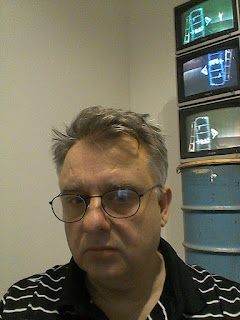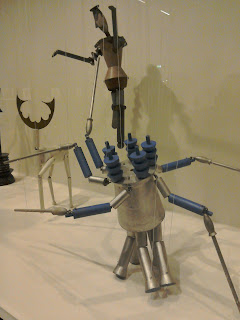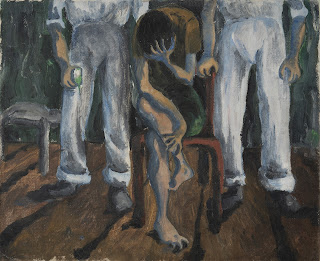DAVID HOCKNEY, THE ARRIVAL OF SPRING, NORMANDY 2020 At the ROYAL ACADEMY

DAVID HOCKNEY, THE ARRIVAL OF SPRING, NORMANDY 2020 At the ROYAL ACADEMY Hockney has sought to exploit a new material for his painting, his ipad. Attempting to be popular, he has chosen the most conservative subject matter, landscapes of trees, hills, and farms. Isolated trees stand against a horizon consisting of distant hills depicted in deep blue or purple. The most jarring thing is Hockney’s colour palette provided by the ipad. Colours are brighter and less nuanced than normal in fact they are lurid and luminous thus suggesting abstraction. Traditional perspective is evoked, horizon lines always dwell in the middle of the painting and are never pulled up to the very top of the canvas to make abstraction. Some of the works are reminiscent of Van Gogh or Claude Monet, particularly the lily pads depicted in 100 and 105. The insistence of en plein air painting once again references the work of the Impressionists. The canvases are large scale pri


